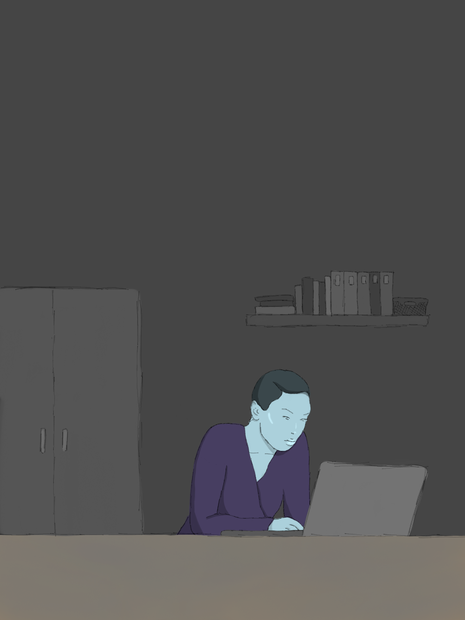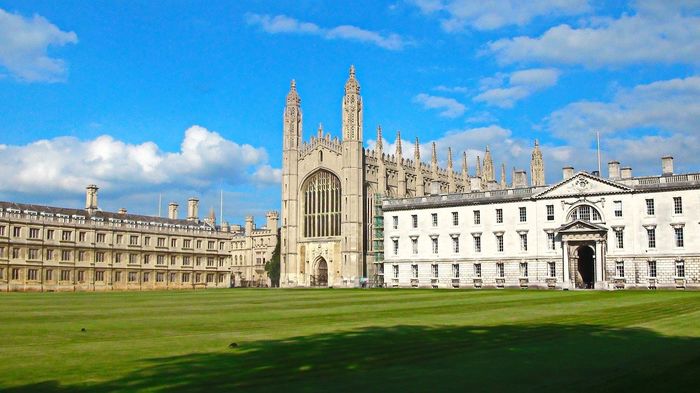Cambridge’s medical course is making students ill
Mikha’el Seth reflects on the pressures and demands of being a medic at Cambridge

Let’s face it, Cambridge can be a very stressful place. With constant deadlines and supervisions there’s very little time to relax. This is especially true if you’re a medical student (as I am). With up to 25 contact hours a week and a very competitive cohort, studying medicine can (ironically) be really bad for your health — both mental and physical. In my experience the Faculty of Biology not only ignores medics’ mental health concerns but contributes to our struggles as well.
“a huge number of facts [...] are forgotten after exams”
So let’s start with the academic intensity. It’s well acknowledged that medicine has a large amount of contact hours per week. At first this seems to be an inescapable reality for any medical student at any university. However, I’ve observed that Cambridge students often receive much more content than students at other universities, content which has little, if any, clinical relevance. It seems the quantity of content increases each year as new studies are constantly added to our lecture notes. This is because the Cambridge medical degree is intended to prepare students for research in which the ability to recall minute details is invaluable. However, not every medical student aims to become a researcher, and this increased workload feels like an unnecessary burden, forcing us to learn a huge number of facts that are forgotten after exams finish.
Speaking of exams, in medicine every exam counts. We have to hit the ground running, with the grades we get in first and second year contributing to our final grade as a medical student. Therefore, poor performance in just one year can have a big impact. This is a source of frustration for myself and many medic friends, especially when we hear others don’t have such intense exam pressure so early on in their academic journey.
This make-or-break mentality inevitably impacts students’ mental health, and unfortunately the Faculty of Biology have been repeatedly unsympathetic to the challenges we medics face. I would like to give them the benefit of the doubt and say that this is simply due to a lack of understanding, however the number of complaints my peers have made suggests this is not the case. In fact, it seems as though the faculty are intentionally ignoring the problems we present.
“the perfect storm to create burnout”
This lack of understanding has only been exacerbated during the Covid-19 pandemic. Last academic year (2019-2020) medical exams were postponed until the end of summer without student consultation. Some appreciated this adjustment, others (like myself) did not. Many had committed to summer jobs or internships, meaning that the addition of unforeseen revision prevented students from enjoying a proper summer break. This was the perfect storm to create burnout. For the uninitiated, burnout is a state of physical and emotional exhaustion, often as a result of being stressed or tired.
This burnout extended into the academic year just gone (2020-2021). We were already exhausted and decisions by the faculty didn’t make the situation any better. For instance, the time window students were offered during the pandemic/last year to complete exams, accommodating the different time zones of students, was withdrawn. This decision displays a clear lack of empathy for students which is painfully ironic as medics and doctors are expected to be compassionate and understanding. By ignoring our concerns the faculty are not only building inane barriers to our education, but are also setting a poor example for us as future doctors.
It seems this lack of understanding also extends to some supervisors and directors of studies. This year one of my supervisors told us “don’t worry about exams, they’re very easy to pass”. Although well intentioned, statements like this put even more pressure on struggling students who already felt as though they aren’t good enough to succeed. The comment invalidated my struggles and made me feel as though I simply wasn’t trying hard enough, even though this wasn’t the case.
In my experience, the demanding workload, ever-increasing content, and lack of sympathy from faculty put unnecessary stress on students and this needs to be addressed. The faculty’s current attitudes disadvantage students with mental or physical health problems, or those who have other life commitments (Cambridge isn’t our sole reason for existence!). The course should seek to be more inclusive and have compassion for students who don’t fit the typical idea of a Cambridge medical student.
 News / Colleges charge different rents for the same Castle Street accommodation2 March 2026
News / Colleges charge different rents for the same Castle Street accommodation2 March 2026 News / News in Brief: waterworks, wine woes, and workplace wins 1 March 2026
News / News in Brief: waterworks, wine woes, and workplace wins 1 March 2026 News / Climate activists protest for ‘ethical careers policy’1 March 2026
News / Climate activists protest for ‘ethical careers policy’1 March 2026 News / Angela Merkel among Cambridge honorary degree nominees27 February 2026
News / Angela Merkel among Cambridge honorary degree nominees27 February 2026 News / Private school teacher who lied about Cambridge degree barred from teaching27 February 2026
News / Private school teacher who lied about Cambridge degree barred from teaching27 February 2026









